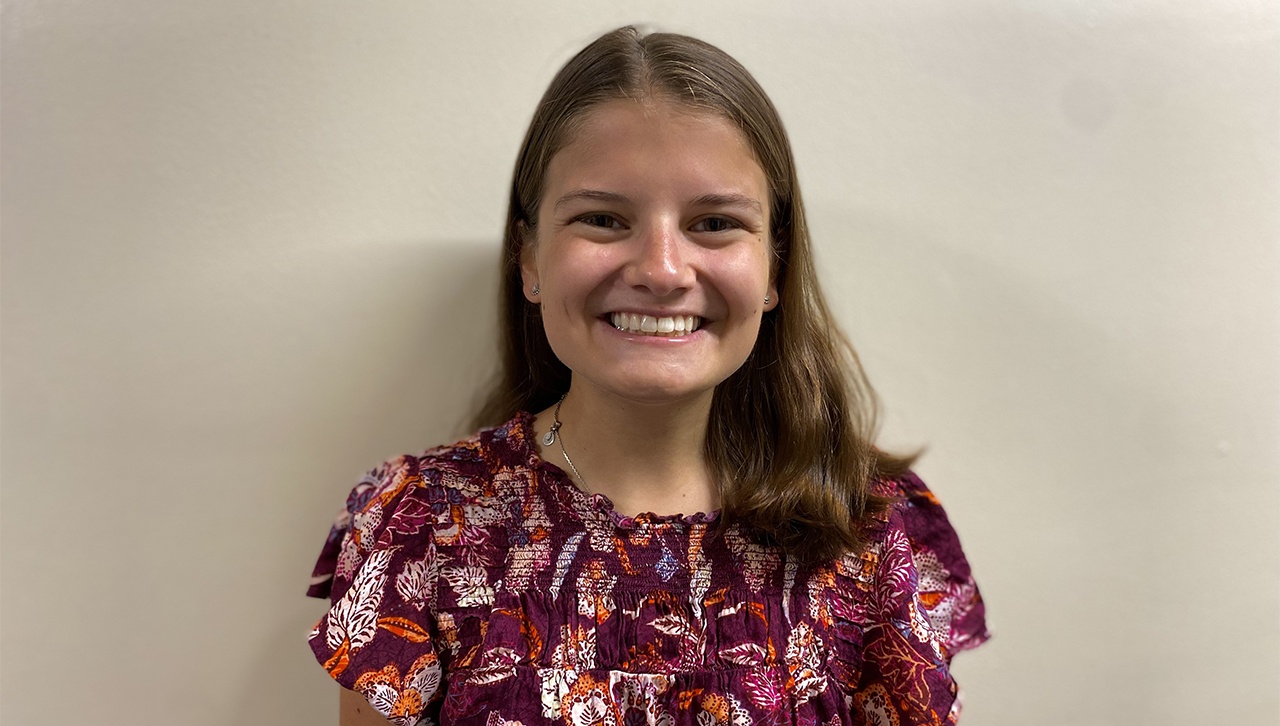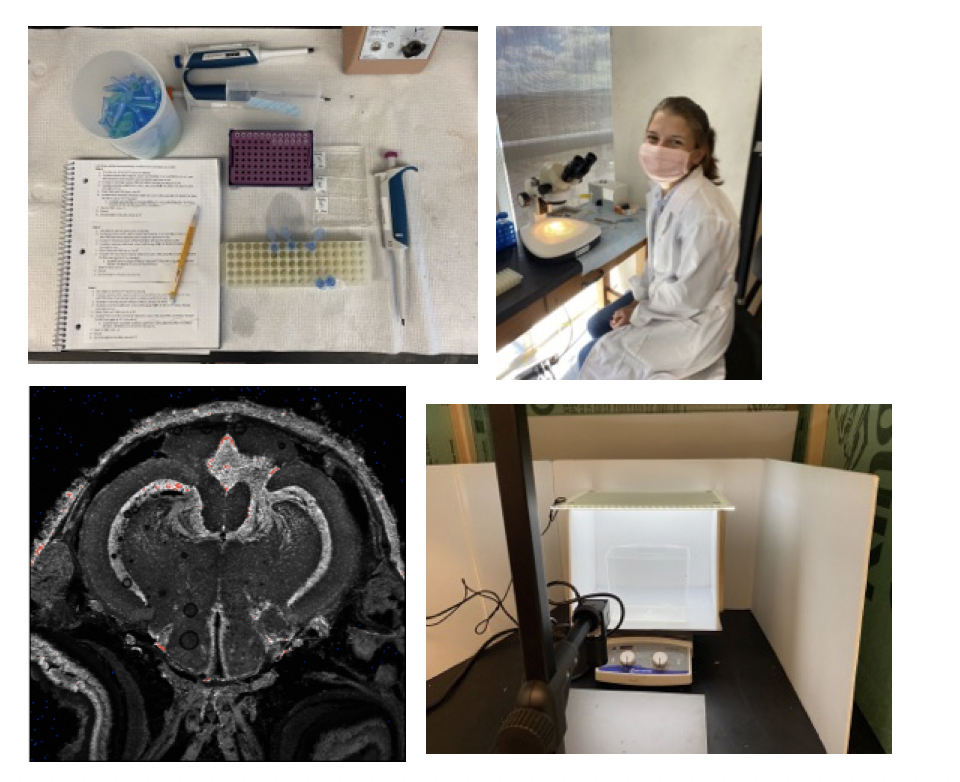Summer Spotlight: Jillian Haller '23

Jillian Haller '23 is interning as an undergraduate researcher in Dr. Jong-Hyun Son’s neurodevelopment lab and working on a project she designed, "Olfactory-Driven Anxiety-like Behavior in the Zebrafish Model."
Here, she answers questions about her experience.
Describe a typical day at the lab.
I arrive at the lab in the morning (anywhere from 8 a.m.-10 a.m.) and begin either writing out or reading my protocol for that day. I always make sure to check in with Dr. Son before I begin collecting the materials I need for whatever I am doing that day. Once I’m done with the tests or procedures I need to run, I wrap up for the day and head home.
What is the duration of your research?
I work on my research year-round, but for the summer I stayed in Scranton so I could work on my project. This enabled me to give it more focus and attention than I typically can during the academic year. The number of hours I put in each day varies anywhere from 4-9 depending upon what I have on my to-do list for that day.
What do you enjoy most about your research?
The independence I have gained while conducting my own research study has to be my favorite thing about my job. It has allowed me to develop critical thinking skills far beyond what I ever could have imagined. Being able to see my work and seedlings of ideas grow for the last two years has been incredibly rewarding and an experience that has inspired my future career path. I have been able to watch myself fail and get back up again more times than I can count throughout this project, but I have discovered that it is through these failures and shortcomings I learn the most.
 What are some of the skills you have learned?
What are some of the skills you have learned?
I imagine the most valuable skill I have learned is time management. I am admittedly a long-time procrastinator, and I knew I needed to improve upon this skill going into this job. Running my own research project has forced me to create schedules for myself and adhere to the four to-do lists I have running.
In the laboratory, however, I learn a new skill almost every day. From enhancing my ability to think on my toes to learn how to use equipment like the confocal microscope or Cryostat, Dr. Son is helping me build up quite the repertoire of lab techniques I will use for the rest of my life. Dr. Son has also recognized some of my weaknesses in the lab and has helped me improve upon those throughout my time working with him. One such weakness, my mental math skills, is one he is determined to help me improve through constantly asking me how to make certain solutions without the use of a calculator.
What were your expectations of the job? Does it match the reality?
I had expected this job to be rewarding, but not without challenge. So far, it has met my expectations. I had envisioned myself learning how to devise a scientific experiment and gaining more independence along with confidence each day. Since starting I have experienced just that, and it has been an experience that has altered my life and aspirations. One thing I did not accurately envision was the number of obstacles I would meet along the way. I had anticipated some missteps in my journey working in this lab, however, I underestimated the number of errors I would make. One thing I learned through Dr. Son is not to be discouraged by the things that may go wrong in the lab; that’s simply science. Coming back from your mistakes and adjusting without quitting is where the learning takes place. From this, I have discovered that mistakes are oftentimes more valuable than triumphs.
Pictured, clockwise from top left: Haller's workbench while immunostaining brain tissue, so that she can image under the confocal microscope; Haller working at the microscope; Haller's setup for filming the behavior of her Zebrafishan; and an image captured under the confocal microscope of a tissue section of one of the brains Haller sliced and stained using immunohistochemistry.
How do you feel this job has prepared you for the real world?
Most importantly, I think this job has inspired a redirection in career paths for me. I had gone into this summer with the vision of pursuing an M.D. after my time at Scranton. However, after this experience, research has become something I cannot see my life without, therefore I am now considering pursuing an M.D./Ph.D. instead. This job has fed my hunger for knowledge and love for science more than I thought it could and has equipped me with the skills necessary to continue pursuing my career goal.
Lastly, understanding how to cope with failures and turn them into lessons learned has been a skill I will utilize in my future career. I also realize that this skill is easily translated into life outside of academia, as I find myself handling my personal setbacks with grace and an open mind.






